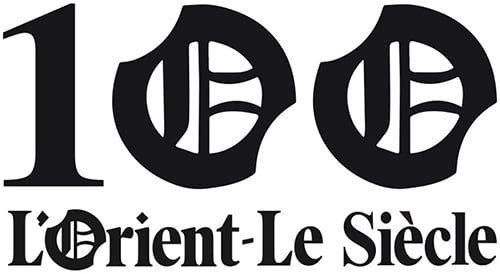Professor Mikhail Pokrovsky in his laboratory. Photo Rusina Shikhatova / Le Courrier de Russie
Mikhaïl Pokrovskiï, a 56-year-old doctor specialising in pharmacology, moved to Belgorod from his native city of Sotchi back in 2011, invited by the regional university in light of his expertise. Pokrovskiï was one of the first to start work at the new clinical research centre, which now boasts 35 researchers and is known as one of the best laboratories in the country. The lab is currently focused on developing new means of producing medicine, more specifically looking into the manufacture of monoclonal antibodies. These are complex proteins used by the immune system to detect and neutralise pathogens.
"Start by imagining a person with cancer," explains M. Pokrovskiï. "His body produces antibodies to fight the disease, but their quantity is insufficient. If science allows us to reproduce antibodies identical to these ones, we could inject them into the sick body to repair the diseased, cancerous cells."
These monoclonal antibodies are being created using a technique that won César Milstein and Georges Kohler the Nobel Prize in Medicine in 1984. And yet, if the principle is so simple, and the process has been around for more than 30 years, why is this anti-cancer remedy not already being used in hospitals?
As professor Pokrovskiï explains, the idea itself may sound simple, but the real difficulty lies in performing the complex process required to manufacture anything that contains monoclonal antibodies. "All doctors worldwide are still in the early stages of research in this subject area," he says. "We are still only at the very beginning of this very promising, but very long, road." At this moment in time, less than 3% of medicines across the planet use monoclonal antibodies.
In June 2015, Dr Pokrovskiï's laboratory in Belgorod received funding from the Russian government for the creation of a biological engineering centre. This then channelled their work into a very specific direction: to help veterinarians provide quicker and more accurate pregnancy tests for cows.
In the dairy farming industry, cows must be inseminated every year to ensure that milk is regularly produced. The existing methods for detecting pregnancy in cows can only be used around two months after insemination, which is too long for farmers who rely on milk production for a living. Nearly a third of cows are not successfully fertilised in the first attempt, meaning that a second attempt needs to be made as rapidly as possible for milk to be produced. Belgorod alone is home to around 100,000 cows, whilst there are approximately three million throughout the whole of Russia.
In the space of only ten months, researchers at the Belgorod lab created a quick and reliable test, based on monoclonal antibody technology. "We selected proteins from the placenta of the cow and multiplied them in the laboratory," explains Alexander Koulik, the head of research into monoclonal antibodies. "We then used the proteins to manufacture a whole strip. If you simply deposit a drop of blood from the cow onto the strip it tells you if she is pregnant: the strip changes colour if the blood contains placenta protein."
Much like pregnancy tests for women, this device allows veterinarians to detect a possible pregnancy around 15 days after the insemination of the cow.
"Other countries currently possess similar means of diagnosis, but these are performed on the cow's milk instead of blood, and it is therefore necessary to wait longer after insemination," continues Alexandre Koulik. "Our test is 'express' in more than one way: the strip gives a result in five minutes. This invention will significantly increase the efficiency of milk production".
At the start of 2016, the regional cooperative Gorina subjected the method to initial tests and came out with positive results. They are now looking to commercialise the product before the end of the year, with the price ranging between 200 and 300 rubles (around 2.70 to 4 euros) per sample.
From this same monoclonal antibody technology Mikhaïl Pokrovskiï and his team have already developed a range of tests allowing the diagnosis of tuberculosis, tularaemia and leucosis in cows, and the African plague in pigs.
"Of course, all of these diseases can already be diagnosed through traditional, in vitro methods," says Pokrovskiï, "but our express diagnosis saves both time and resources. So, why wouldn't we use it?" If this researcher is right, these innovative products could cover 60 to 70% of the current veterinary tests required in Russia, as well as doing them in an 'express' time frame.
And when will these tests be able to diagnose human diseases? According to Mr. Pokrovskiï, it is only a matter of time. "At this moment, a method of detecting cancer or Alzheimer's disease does not exist, but the technology is there. We are working on this alongside other researchers, and the number of medicines and tests that use monoclonal antibodies will definitely increase in the future. We have already mastered the mechanisms behind the medicines of the future, it's just a question of time."

commentaires (0)
Commenter